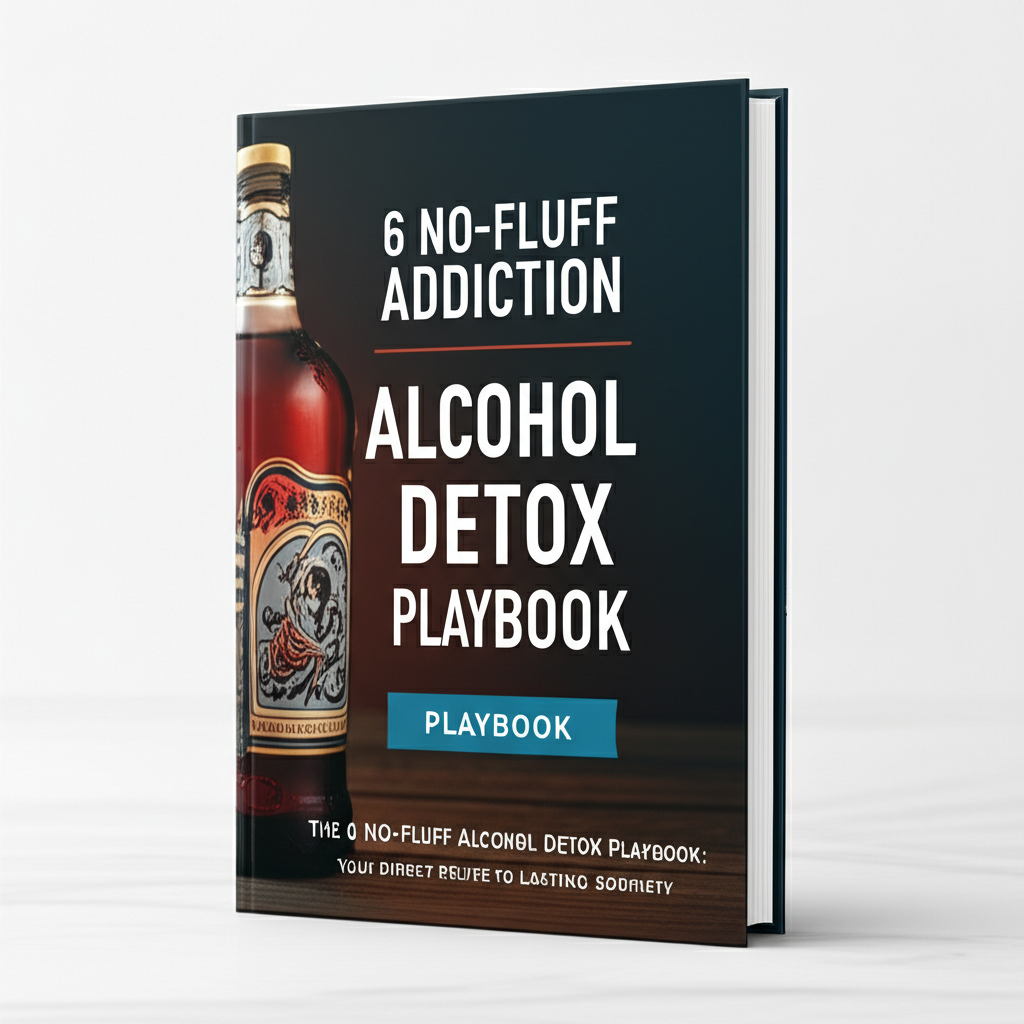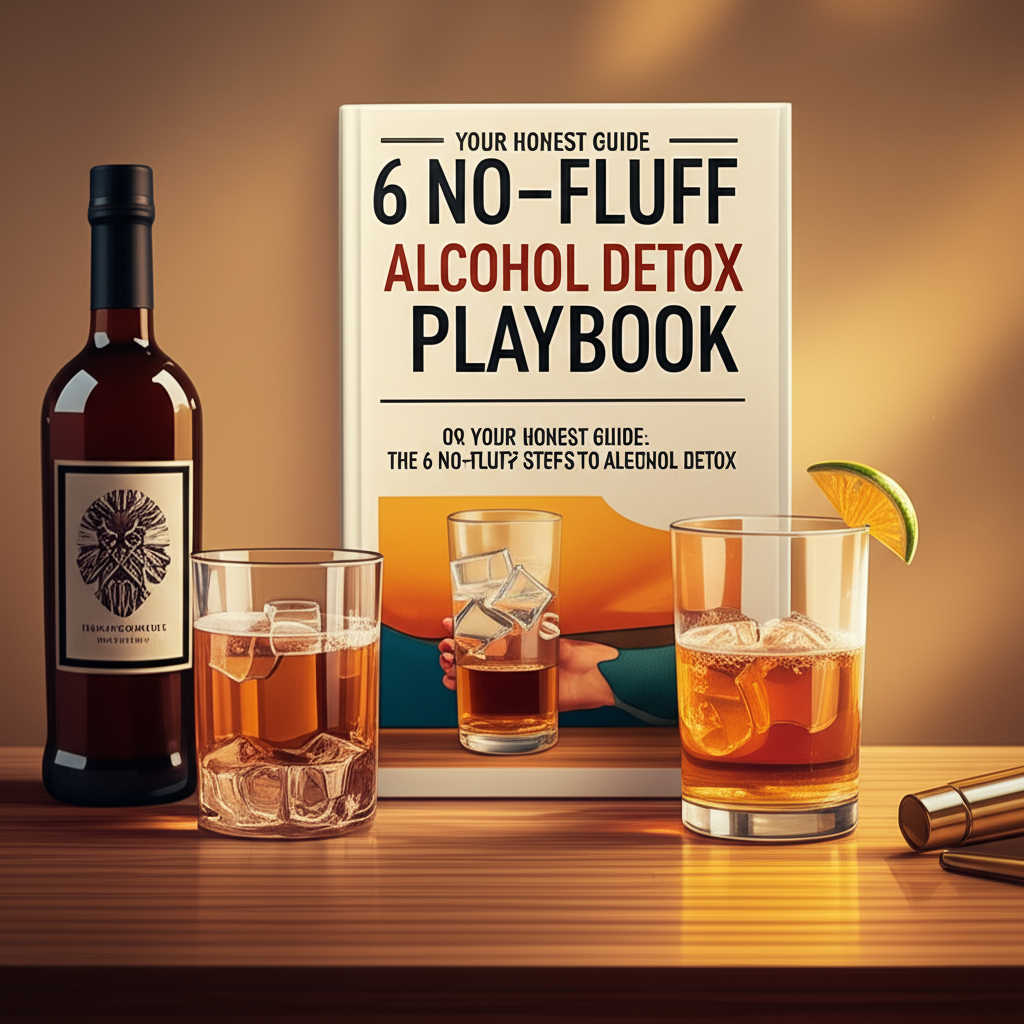The silent struggle with alcohol addiction affects millions, often leaving individuals feeling isolated, hopeless, and trapped in a cycle they desperately want to escape. The decision to seek help is a monumental first step, a beacon of hope in the often-dark landscape of addiction. For many, this journey begins with alcohol detoxification – a critical, often challenging, but ultimately transformative process of ridding the body of alcohol and managing the intense withdrawal symptoms that follow.
However, the path to sobriety is fraught with misconceptions and potential pitfalls, especially when it comes to detox. It’s not merely about "stopping drinking"; it’s a complex medical process that, if not managed correctly, can be dangerous, even fatal. That’s why understanding the fundamentals of a safe and effective detox is paramount.
This comprehensive guide is designed to empower you with essential knowledge, illuminating the three crucial pillars of a successful alcohol detox. We’ll strip away the jargon, provide clear insights, and equip you with the information needed to navigate this vital initial phase of recovery with confidence and safety.
Understanding Alcohol Detox: The Critical First Step
Before diving into our three essential guides, it’s vital to grasp what alcohol detox truly entails and why it’s so critical for sustainable recovery.
What is Alcohol Detoxification?
Alcohol detoxification, commonly referred to as "detox," is the process by which an individual’s body eliminates alcohol and its metabolic byproducts after prolonged or heavy consumption. When someone drinks alcohol regularly, their body adapts to its presence, altering brain chemistry to compensate for its depressive effects. When alcohol is suddenly removed, the central nervous system, no longer inhibited, becomes overactive, leading to a range of uncomfortable and potentially life-threatening symptoms known as alcohol withdrawal syndrome (AWS).
The primary goal of detox is to safely manage these withdrawal symptoms, stabilize the individual’s physical and psychological state, and prepare them for the subsequent stages of addiction treatment, such as rehabilitation and therapy.
Why Professional Detox is Non-Negotiable
The idea of detoxing at home, away from the perceived "shame" of a facility, might seem appealing to some. However, attempting to detox from alcohol without medical supervision is incredibly risky and can have severe consequences. Alcohol withdrawal is not like withdrawing from caffeine or sugar; it’s a serious medical condition that demands professional oversight.
Here’s why professional detox is crucial:
- Severity of Withdrawal Symptoms: Symptoms can range from mild (tremors, anxiety, nausea, headache) to severe and life-threatening (seizures, hallucinations, delirium tremens, or DTs). These severe symptoms can develop rapidly and unpredictably.
- Medical Complications: Unsupervised detox can lead to dehydration, electrolyte imbalances, cardiovascular issues, and even death. Pre-existing medical conditions can exacerbate these risks.
- Psychological Distress: The emotional and psychological toll of withdrawal (intense anxiety, panic attacks, depression, paranoia) can be overwhelming and contribute to early relapse or self-harm.
- Relapse Risk: Without medical support and medication to alleviate discomfort, the urge to drink again to stop the suffering is incredibly strong, making successful unsupervised detox rare.
Understanding these risks underscores the importance of our first essential guide: professional medical supervision.
Guide 1: Professional Medical Supervision is Non-Negotiable
The cornerstone of any safe and effective alcohol detox is the presence of qualified medical professionals. This isn’t just about comfort; it’s about survival and setting the stage for long-term recovery.
The Dangers of "Cold Turkey" Detox
Attempting to quit alcohol "cold turkey" at home is a gamble with your life. While some individuals with very mild dependence might experience manageable symptoms, there’s no way to predict who will develop severe, life-threatening withdrawal.
Consider the potential risks:
- Seizures: Alcohol withdrawal seizures can occur within 6 to 48 hours after the last drink and can be generalized tonic-clonic (grand mal) seizures, leading to injury or aspiration.
- Delirium Tremens (DTs): This severe form of withdrawal typically appears 48 to 96 hours after the last drink. DTs involve profound confusion, disorientation, severe agitation, hallucinations (visual, auditory, tactile), and significant autonomic instability (rapid heart rate, high blood pressure, fever, profuse sweating). Without immediate medical intervention, DTs can be fatal in up to 15% of cases due to cardiovascular collapse, respiratory failure, or hyperthermia.
- Cardiac Arrest: The strain on the cardiovascular system during severe withdrawal can lead to arrhythmias or heart failure.
- Dehydration and Electrolyte Imbalance: Vomiting, sweating, and poor fluid intake can quickly lead to severe dehydration and critical electrolyte disturbances, impacting heart and brain function.
The Indispensable Role of Medical Professionals
A professional medical detox facility provides a controlled, supportive, and medically equipped environment where withdrawal can be managed safely. Here’s how medical professionals are crucial:
-
Comprehensive Medical Assessment: Upon admission, a team of doctors and nurses will conduct a thorough physical and psychological evaluation. This includes:
- Reviewing medical history, including any co-occurring physical or mental health conditions.
- Assessing the severity and duration of alcohol use.
- Performing blood tests to check organ function and electrolyte levels.
- Evaluating for nutritional deficiencies.
-
Continuous Monitoring: Throughout the detox process, medical staff constantly monitor vital signs (heart rate, blood pressure, temperature, respiration), neurological status, and the progression of withdrawal symptoms. This allows for immediate intervention if complications arise.
-
Medication Management: This is perhaps the most critical aspect of medical detox. Medications are administered to alleviate withdrawal symptoms, prevent seizures and DTs, and make the process more tolerable.
- Benzodiazepines: Medications like diazepam (Valium), lorazepam (Ativan), or chlordiazepoxide (Librium) are the gold standard. They work by mimicking the calming effects of alcohol on the brain, gradually tapering down the dosage to reduce CNS hyperactivity and prevent severe withdrawal.
- Anti-nausea medications: To manage gastrointestinal distress.
- Nutritional supplements: Thiamine (Vitamin B1) is often given to prevent Wernicke-Korsakoff syndrome, a serious neurological disorder common in chronic alcoholics.
- Other supportive medications: To address specific symptoms like insomnia or anxiety.
-
Emotional Support and Guidance: Beyond the physical, medical staff provide reassurance, explain what to expect, and help manage the intense anxiety and fear often associated with detox. Their presence alone can significantly reduce psychological distress.
By placing yourself under the care of medical professionals, you are not only ensuring your physical safety but also laying the most stable foundation for your recovery journey.
Guide 2: Tailored Treatment Plans for Individual Needs
Addiction is a deeply personal experience, and so too should be the detox and recovery process. A "one-size-fits-all" approach to alcohol detox is ineffective because every individual’s journey, biology, and circumstances are unique.
Why One-Size-Fits-All Doesn’t Work
Consider the vast differences between individuals struggling with alcohol addiction:
- Duration and Quantity of Use: Someone who has been drinking heavily for decades will likely experience more severe and prolonged withdrawal than someone with a shorter history of dependence.
- Overall Physical Health: Pre-existing conditions such as liver disease, heart problems, diabetes, or kidney issues significantly impact how the body processes alcohol and manages withdrawal. An older individual with compromised health requires a different approach than a young, otherwise healthy person.
- Co-occurring Mental Health Disorders: Many individuals with alcohol addiction also struggle with mental health conditions like depression, anxiety, PTSD, or bipolar disorder. These "dual diagnoses" complicate detox, as withdrawal can exacerbate mental health symptoms, and vice-versa.
- Previous Detox Attempts: A history of previous severe withdrawals (e.g., seizures or DTs) increases the risk of recurrence and necessitates more aggressive medical management.
- Polysubstance Use: If other substances are also being used, the detox plan must account for multiple withdrawal syndromes.
These factors underscore the critical need for a personalized approach to ensure both safety and effectiveness.
Components of a Personalized Detox Plan
A reputable detox facility will develop an individualized treatment plan based on a thorough initial assessment. This plan typically includes:
-
In-depth Medical and Psychiatric Evaluation:
- A comprehensive physical exam, including lab tests to assess organ function, nutritional status, and screen for infections.
- Detailed history of alcohol use, including patterns, amounts, and previous withdrawal experiences.
- Screening for co-occurring mental health disorders and past trauma.
- Assessment of social support systems and living situation.
-
Customized Medication Protocol:
- The type, dosage, and schedule of withdrawal medications (primarily benzodiazepines) are adjusted based on the individual’s withdrawal severity, medical history, and response to treatment.
- For example, someone with a history of seizures might receive a more aggressive benzodiazepine regimen.
- Other supportive medications (e.g., for sleep, nausea, or specific mental health symptoms) are added as needed.
-
Nutritional Support and Hydration:
- Many individuals entering detox are malnourished and dehydrated. The plan will include a balanced diet, intravenous fluids if necessary, and vitamin supplements (especially thiamine).
- Nutritional support aids in physical recovery and helps stabilize mood.
-
Early Therapeutic Interventions:
- While the primary focus during acute detox is medical stabilization, many programs offer early, gentle therapeutic support. This might include:
- Brief individual counseling sessions to address immediate anxieties and fears.
- Educational groups about addiction and the recovery process.
- Mindfulness or relaxation techniques to manage stress.
- These initial interventions help individuals begin to process their addiction and prepare for more intensive therapy in rehabilitation.
- While the primary focus during acute detox is medical stabilization, many programs offer early, gentle therapeutic support. This might include:
-
Seamless Transition Planning:
- A personalized plan considers the next steps in the recovery journey before detox is complete. This includes identifying suitable rehabilitation programs (inpatient or outpatient), therapy options, and support groups that align with the individual’s needs and preferences.
By tailoring the detox experience, facilities maximize the chances of a safe, comfortable, and successful withdrawal, paving the way for sustained sobriety.
Guide 3: Comprehensive Aftercare and Relapse Prevention
Detox is merely the critical first step in a much longer journey of recovery. While it addresses the physical dependence on alcohol, it does not cure the underlying psychological and behavioral aspects of addiction. Without robust aftercare and a proactive relapse prevention strategy, the risk of returning to alcohol use is exceptionally high.
Detox is Just the Beginning
Imagine you’ve successfully completed detox. Your body is free of alcohol, the acute withdrawal symptoms have subsided, and you feel a renewed sense of clarity. This is a monumental achievement! However, the cravings, the emotional triggers, the learned behaviors, and the unresolved issues that contributed to your addiction are still present. This is where aftercare becomes not just helpful, but absolutely essential.
The brain needs time to heal and re-learn healthy coping mechanisms. Old habits and thought patterns are deeply ingrained, and without continued support, the pull back to familiar, albeit destructive, ways can be overwhelming.
Essential Elements of Comprehensive Aftercare
A well-rounded aftercare plan is multifaceted and designed to provide ongoing support, education, and therapeutic intervention. Key components include:
-
Rehabilitation Programs (Rehab):
- Inpatient/Residential Rehab: Offers a structured, immersive environment away from triggers. This is ideal for those with severe addictions, co-occurring disorders, or a history of relapse. Programs typically last 30, 60, or 90 days, providing intensive therapy, education, and peer support.
- Outpatient Programs (IOP/PHP): Intensive Outpatient Programs (IOP) and Partial Hospitalization Programs (PHP) offer structured therapy during the day or evening, allowing individuals to live at home. These are suitable for those with strong support systems and less severe addiction, or as a step-down from inpatient care.
-
Individual and Group Therapy:
- Cognitive Behavioral Therapy (CBT): Helps individuals identify and change negative thought patterns and behaviors that contribute to alcohol use.
- Dialectical Behavior Therapy (DBT): Focuses on emotional regulation, distress tolerance, interpersonal effectiveness, and mindfulness.
- Motivational Interviewing: Helps individuals explore and resolve ambivalence about change.
- Group Therapy: Provides a safe space for individuals to share experiences, gain perspective from peers, and develop a sense of community and accountability.
-
Support Groups:
- Alcoholics Anonymous (AA): A widely recognized 12-step program based on peer support and spiritual principles.
- SMART Recovery: A science-based, self-empowering addiction recovery support group that teaches self-reliance.
- Other Peer Support Groups: Many other specialized groups exist, offering various approaches to sobriety.
- Regular attendance at these meetings provides ongoing encouragement, strategies for coping, and a network of sober individuals.
-
Family Therapy:
- Addiction impacts the entire family system. Family therapy helps address communication breakdowns, heal relationships, and educate family members on how to support their loved one’s recovery without enabling.
-
Life Skills Training and Relapse Prevention Planning:
- Developing healthy coping mechanisms for stress, anger, and cravings.
- Learning practical skills like financial management, job seeking, and healthy communication.
- Identifying personal triggers and developing a concrete plan to avoid or manage them.
- Creating an emergency plan for high-risk situations.
-
Medication-Assisted Treatment (MAT):
- For some, certain medications can significantly aid in preventing relapse post-detox.
- Naltrexone: Reduces cravings for alcohol and blocks the pleasurable effects if alcohol is consumed.
- Acamprosate: Helps reduce long-term withdrawal symptoms like anxiety and insomnia.
- Disulfiram: Produces an unpleasant physical reaction (nausea, vomiting, flushing) if alcohol is consumed, acting as a deterrent.
- For some, certain medications can significantly aid in preventing relapse post-detox.
By embracing a comprehensive aftercare plan, you are not just preventing relapse; you are building a new life foundation rooted in health, self-awareness, and lasting sobriety.
What to Expect During Detox: A Brief Overview
While individual experiences vary, understanding the general timeline and symptoms can help manage expectations:
- 6-12 Hours After Last Drink: Mild symptoms begin (anxiety, tremors, headache, nausea, sweating).
- 12-24 Hours After Last Drink: Hallucinations (auditory, visual, tactile) can begin, though often transient.
- 24-48 Hours After Last Drink: Seizures are most likely to occur.
- 48-72 Hours After Last Drink: Delirium Tremens (DTs) can manifest, characterized by severe confusion, agitation, disorientation, and autonomic instability. This is the most dangerous phase.
- 5-7 Days (or Longer): Acute withdrawal symptoms typically subside, though some protracted withdrawal symptoms (Post-Acute Withdrawal Syndrome or PAWS) like anxiety, depression, and sleep disturbances can linger for weeks or months.
Throughout this period, medical staff will continuously monitor you, administer medications, and provide comfort and support. Open communication with your care team about how you’re feeling is crucial.
Choosing the Right Detox Program
When making the decision to seek help, consider these factors when evaluating detox programs:
- Accreditation and Licensing: Ensure the facility is licensed by the state and accredited by recognized bodies (e.g., The Joint Commission) for quality and safety.
- Medical Staff Qualifications: Verify that doctors, nurses, and addiction specialists are on staff 24/7.
- Individualized Treatment: Confirm that they offer personalized care plans, not a generic approach.
- Continuum of Care: Does the facility offer aftercare planning and referrals to rehab programs, or do they integrate detox and rehab?
- Environment: Is the setting safe, supportive, and conducive to healing?
- Insurance and Cost: Understand what your insurance covers and any out-of-pocket expenses.
Conclusion: Embracing Hope and a New Beginning
Embarking on the journey of alcohol detox is an act of profound courage and self-love. It’s the essential first step towards reclaiming your life from the grip of addiction. By adhering to these three essential guides – seeking professional medical supervision, embracing a tailored treatment plan, and committing to comprehensive aftercare – you dramatically increase your chances of a safe, successful detox and sustainable long-term recovery.
Remember, you don’t have to face this challenge alone. There are dedicated professionals and supportive communities ready to walk alongside you. If you or a loved one is struggling with alcohol addiction, please reach out for help. The path to a healthier, happier, and sober life is within reach, and it begins with making that brave, life-changing decision today. Your future self will thank you.








